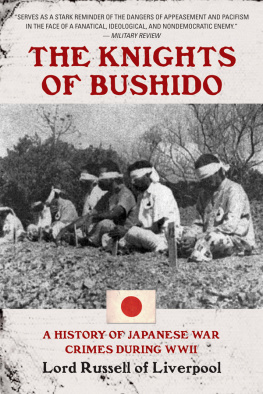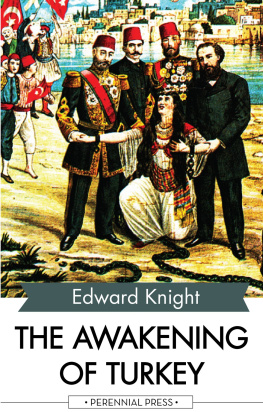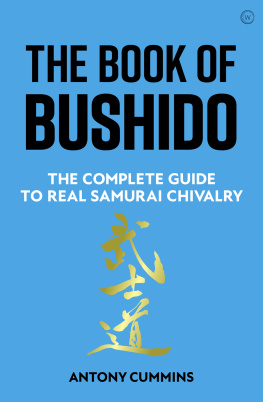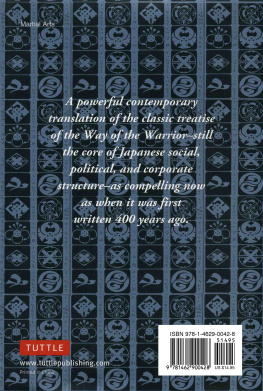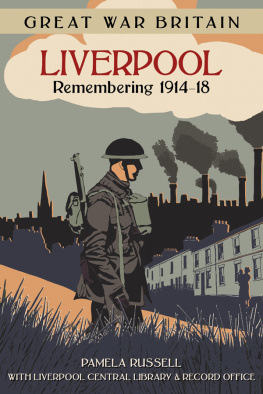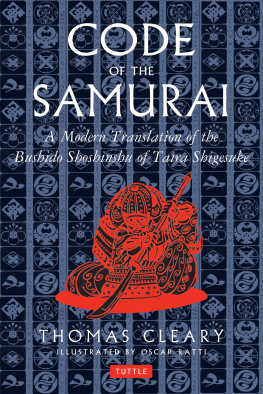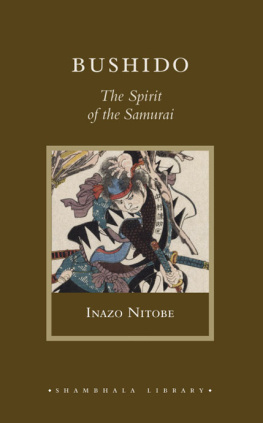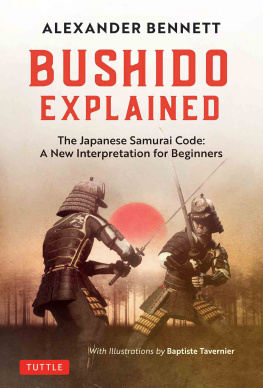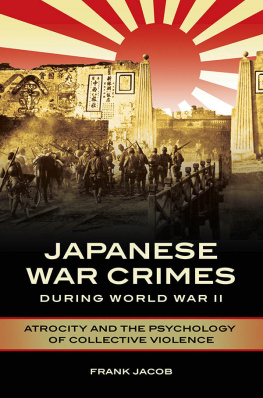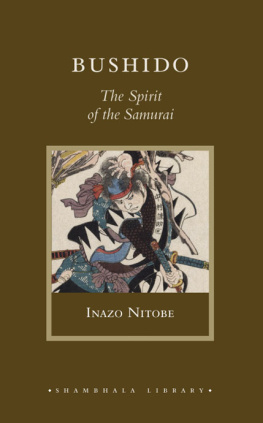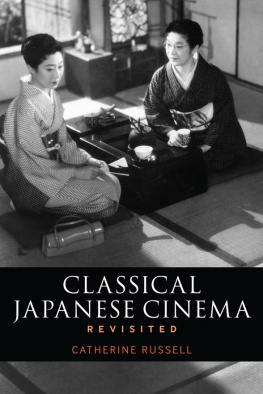Russell of Liverpool - The Knights of Bushido: A History of Japanese War Crimes During World War II
Here you can read online Russell of Liverpool - The Knights of Bushido: A History of Japanese War Crimes During World War II full text of the book (entire story) in english for free. Download pdf and epub, get meaning, cover and reviews about this ebook. City: New York, year: 2008;2011, publisher: Skyhorse Publishing, genre: Politics. Description of the work, (preface) as well as reviews are available. Best literature library LitArk.com created for fans of good reading and offers a wide selection of genres:
Romance novel
Science fiction
Adventure
Detective
Science
History
Home and family
Prose
Art
Politics
Computer
Non-fiction
Religion
Business
Children
Humor
Choose a favorite category and find really read worthwhile books. Enjoy immersion in the world of imagination, feel the emotions of the characters or learn something new for yourself, make an fascinating discovery.
- Book:The Knights of Bushido: A History of Japanese War Crimes During World War II
- Author:
- Publisher:Skyhorse Publishing
- Genre:
- Year:2008;2011
- City:New York
- Rating:4 / 5
- Favourites:Add to favourites
- Your mark:
- 80
- 1
- 2
- 3
- 4
- 5
The Knights of Bushido: A History of Japanese War Crimes During World War II: summary, description and annotation
We offer to read an annotation, description, summary or preface (depends on what the author of the book "The Knights of Bushido: A History of Japanese War Crimes During World War II" wrote himself). If you haven't found the necessary information about the book — write in the comments, we will try to find it.
The Knights of Bushido: A History of Japanese War Crimes During World War II — read online for free the complete book (whole text) full work
Below is the text of the book, divided by pages. System saving the place of the last page read, allows you to conveniently read the book "The Knights of Bushido: A History of Japanese War Crimes During World War II" online for free, without having to search again every time where you left off. Put a bookmark, and you can go to the page where you finished reading at any time.
Font size:
Interval:
Bookmark:

Copyright 2008 by Skyhorse Publishing, Inc.
All Rights Reserved. No part of this book may be reproduced in any manner without the express written consent of the publisher, except in the case of brief excerpts in critical reviews or articles. All inquiries should be addressed to Skyhorse Publishing, 307 West 36th Street, 11th Floor, New York, NY 10018.
Skyhorse Publishing books may be purchased in bulk at special discounts for sales promotion, corporate gifts, fund-raising, or educational purposes. Special editions can also be created to specifications. For details, contact the Special Sales Department, Skyhorse Publishing, 307 West 36th Street, 11th Floor, New York, NY 10018 or .
Skyhorse and Skyhorse Publishing are registered trademarks of Skyhorse Publishing, Inc., a Delaware corporation.
Visit our website at www.skyhorsepublishing.com
Library of Congress Cataloging-in-Publication Data
Russell of Liverpool, Edward Frederick Langley Russell, Baron, 1895-1981.
The knights of Bushido : a history of Japanese war crimes during World War II / Lord Russell of Liverpool.
p. cm.
Subtitle of the previous edition: A short history of Japanese war crimes.
Includes index.
ISBN 978-1-60239-145-1 (alk. paper)
1. World War, 1939-1945AtrocitiesAsia. 2. Sino-Japanese War,
1937-1945Atrocities. 3. War crimesJapan. 4. JapanArmed Forces
History. I. Title.
D804.J3R8 2008
940.54050952dc22
2007052801
10 9 8 7 6 5 4 3
Printed in the United States of America
EVER since my short history of Nazi war crimes, The Scourge of The Swastika, was published I have Keen approached by many people to write a companion volume on Japanese war crimes.
This book is the result of those requests.
Like its predecessor, it has been compiled from evidence given and documents produced at various war crimes trials, and from affidavits and statements made by eyewitnesses of such crimes to war crime investigation commissions set up after the War by the Allies to bring the criminals to justice.
I regret that it has been necessary to include so much that is unpleasant, but it would have been impossible to have done otherwise without, at the same time, failing to achieve the whole aim of the book, namely to give a concise but comprehensive account of Japanese war crimes. Nevertheless, for every revolting incident which has been described, a hundred have been omitted.
I SHOULD like to express my thanks to the following:
To the Rt. Hon. Antony Head, CBE, MC, MP, formerly Secretary of State for War, for arranging for me to have access to the proceedings of Japanese war crime trials:
To Sir Frederick Gentle, QC, Judge Advocate General of the Forces, and his Registrar, for placing these proceedings at my disposal.
To Sir Arthur Comyns Carr, QC, Mr. C. S. A. Dobson, Librarian to the House of Lords, and his Assistants, and Mr. A. D. Wilson, Librarian to the Foreign Office, for providing me with copies of the shorthand transcript of the proceedings of the International Military Tribunal, Far East.
To the Director of the Imperial War Museum for placing a number of photographs at my disposal.
To Leo Rawlings, for allowing me to reproduce some of the graphic paintings he produced while a prisoner of war in Japanese hands.
To the Editor, Picture Post, for access to his files; and to the following, who have placed at my disposal the proceedings of war crime trials, diaries, reports and other documents: Major-General E.C.O. Morphy, Major-General F. N. Tottenham, Colonel L. R. S. MacFarlane, OBE, MD, Colonel C. W. Maisey, OBE, Lieutenant-Colonel M. B. Allsebrook, DSO, MC, Lieutenant-Colonel H. S. Flower, OBE, Wing Commander C. Pitts, Major E. N. Hebden, Major R. Lucas, Major B. Peacock, Squadron Leader M. C. Mainprice. Mesdames Carvell, Deacon, and Wemyss and Messrs. I. T A. Atkins, MBE, K. A. Attiwill, MC, G. Gordon Barnes, P. Bartram, L. Beswick, J. B. Charlton, H. R. Cheeseman, CMG, A. Chettle, E. J. Coffey, L. G. Coleman, C. E. Collinge, CBE, R.T. Cooke, G. Craig, E. Davies, F. G. Davis, J. P. Fisher, F Alistair Forbes, MB, Ch.B, J. A. Foster, F W. Fox, R. L. N. Harward, K. E. W. Hislop, N. D. Kerr, H E. Kingdon, R. A. Lever, L. S. Millsom, A. J. Neville, R. Plummer, P. E. F. Routhey, J. C. Sharp, A. H. Taylor, V. G. Underwood, Frederick W. Ward, R. J. M. Watson, Graham Williams, J. H. Woodbridge, A. R. H. Wooster.
Between pages 144 and 145
Sikh prisoners used as live targets for rifle practice (Imperial War Museum and U.S. Army Photograph)
Chinese prisoners used for bayonet practice after the fall of Nanking (Keystone)
Chinese prisoners buried alive (Keystone)
The effects of deliberate malnutrition and mistreatment (A.P. Photo)
John Sharp of Leicester, one of the worst-treated prisoners to survive (Illustrated)
An occupant of the Japanese Labour Camp at Seletar, Singapore Island (Imperial War Museum)
The last Will and message of James M. Kim (Imperial War Museum)
The Nippon Golden Arrow
Co-Prosperity (Imperial War Museum and U.S. Army Photograph)
Fourteen illustrations from the contemporary record kept by Leo Rawlings
The meaning of Japanese occupation (A.P. Photo)
Mrs. Elena Maldonadobayoneted and machine-gunned (U S. Army Photograph)
Musebio linatokbayoneted (U.S. Army Photograph)
Street-scenes in Japanese-occupied Singapore
Japanesekilled by Japanese (U.S. Army Photograph)
Javanese labourers bayoneted by the retreating Japanese (U.S. Army Photograph)
Cave No. 3 in Tuba, Benguet, Philippines (U.S. Army Photograph)
Mr. A. Raven, at seventy the oldest prisoner in Stanley Gaol, Hong Kong (Admiralty Photograph)
General Hideki Tojo (Exclusive News Agency)
The seven accused at the Chinese Massacre Trial
Prisoner of war Christmas card
WHEN I was a schoolboy in 1950s Glasgow, the manager of the Western Baths, where I swam, was a taciturn chap called Jamieson. We often wondered why he was so sour, and someone said that he had been a prisoner of the Japanese during the war; they had knocked out his teeth, but he himself never talked about it. There were, as this classic book shows, tens of thousands of such men.
In 1942, 90,000 British Indian and Australian soldiers had surrendered at Singapore, after their commander, Sir A. E. Percival, had been outwitted (the authorities had not expected a Japanese attack from the land; many Japanese even arrived by bicycle). There were thousands of others, taken when a nearly defenceless Hong Kong fell, and when the Japanese swept into the Dutch East Indies and the American-run Philippines. A horrible few years followed. The meneven generals and former governorswere humiliated, beaten, starved. They were even forced to work on Japanese military projects (Canadians worked in the shipyards, and, at the very end, even in the mines) and on the notorious killer-railway projects through the jungles of South-East Asia.
No doubt there were some romantic episodes of collaboration, as in The Bridge over the River Kwai, but such episodes seem to have been few and far between, as the mens memories of Japanese captivity are hellish. Another old ex-prisoner in my boyhood years just said that when they all heard that The Bomb had been dropped, they cheered: it was retribution for what so many tens of thousands had suffered under the Japanese occupation of South-East Asia, Indonesia, and a large part of China. Even now, bitter old men note, in rage, the prosperity of post-war Japan.
Font size:
Interval:
Bookmark:
Similar books «The Knights of Bushido: A History of Japanese War Crimes During World War II»
Look at similar books to The Knights of Bushido: A History of Japanese War Crimes During World War II. We have selected literature similar in name and meaning in the hope of providing readers with more options to find new, interesting, not yet read works.
Discussion, reviews of the book The Knights of Bushido: A History of Japanese War Crimes During World War II and just readers' own opinions. Leave your comments, write what you think about the work, its meaning or the main characters. Specify what exactly you liked and what you didn't like, and why you think so.

